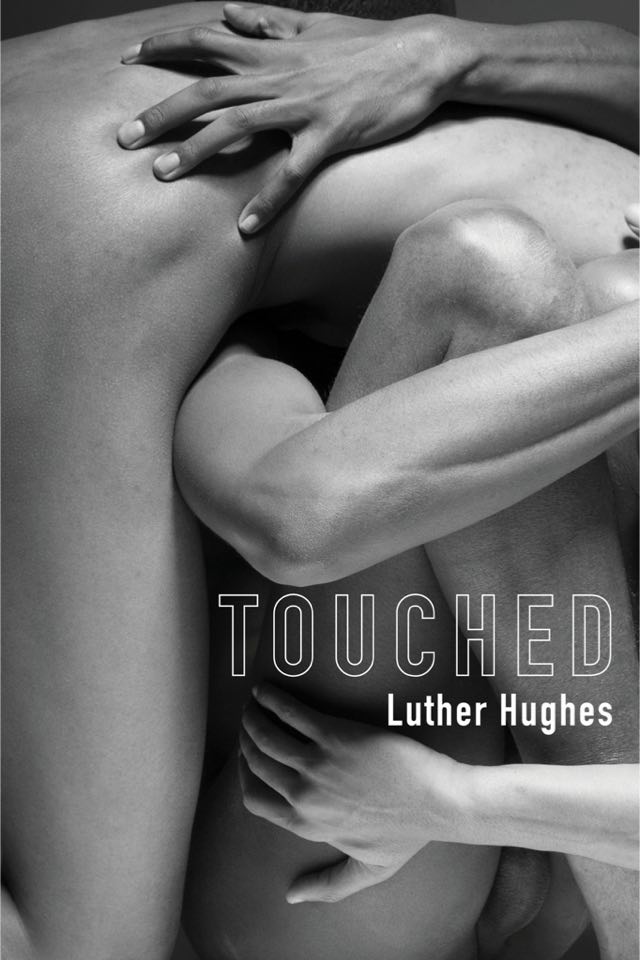Touched
— Logan February
With Luther Hughes’ Touched, I find myself delightfully curious. By this, I mean the poems in this collection do not answer many questions, though they make it clear that they hold a deep knowledge; of the body, of the speaker’s self, of aching, longing, tenderness. I find myself attributing this rare quality to the poet’s adeptness at simplicity, at a verbal economy.
Hughes’ skilful restraint provides the tension that I find essential to this work. He demonstrates incredible control; at each turn, I think this is exactly how he wants me to feel. In ‘Hominal’, he opens the book by writing:
There’s abuse.
The hands of the thing.
Right at this beginning, the mood is set. The speaker takes you by the hand and leads you into a world haunted by wreckage, where “Everything is allowed / to prey.”

With each reading, I find that this world becomes more vivid, more desolate, softer, gentler. A portrait of a thing that must be lived with. And perhaps carried along even after living. In ‘How We Forget,’ a gutting poem that displays how memory fails and repairs itself, the speaker confides: “forgot where I go when I die / is it heaven or my backyard,” thus expressing a fear of death which is more rooted in an anxiety that the afterlife will hold the same pain as this life does.
This is thoroughly understandable; our speaker has lived through a trauma which he is possibly never afforded the claim to. So often, the stories of survivors of sexual violence and abuse go unheard when those survivors are Black, male, and queer. They are perceived as strong and unbreakable, and thus perhaps deserving of their unspeakable mistreatment. But in Touched, we hear a survivor speak. We hear him say:
At the end of the day, agony
is a mouth. In the mirror, I watch
the mouth shiver. If it’s not
the warmth of knowing, then it’s nothing.
This honesty, and how sparingly it is presented, is what makes me so gratefully curious. Because of this book, I am asking, constantly, how does one manage to remain tender, through all these ways of being touched? The work is equally tender in eroticism and violence, and so it is no surprise that in talking about Touched, Danez Smith says “I trust Luther Hughes with the body.” I, too, trust this poet with the body, in flesh and in its rendering on the page.
Hughes’ collection defies chronology, manipulating time to create a sense of awe, without asking any questions. This is because he fearlessly steps into the raw places of the past, so that it is not quite past. He knows and does not explain. Instead he shows. In ‘Clenched’, which has become one of my favorite erotic poems, the speaker says:
I wasn’t sorry. The next day, I wanted
you. I—splayed to pieces, made slaughterhouse.
When you reached the bladder,
there was God. Like you, he was
insistent. Would vein the spine.
Would you believe all my insides
kept: wires, tendons, fluids.
I wasn’t grateful. I was bloodlust
revisited.
Though the collection contains only thirteen poems, I find it enough, on account of how gracefully crafted it is. The economy of the poems extends to the whole of Touched, which is great because it makes it even more of a pleasure to be reread. As for my curiosity, I am somewhat sated by the opening lines of ‘Alternate Ending with Weeping’. In what I interpret as the key to healing and remaining tender, the speaker says: “But I am human. I repeat it. Finally.”